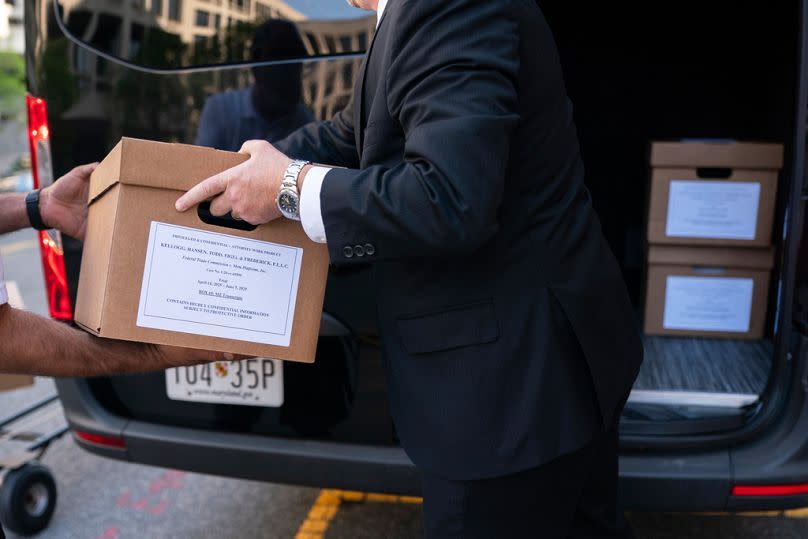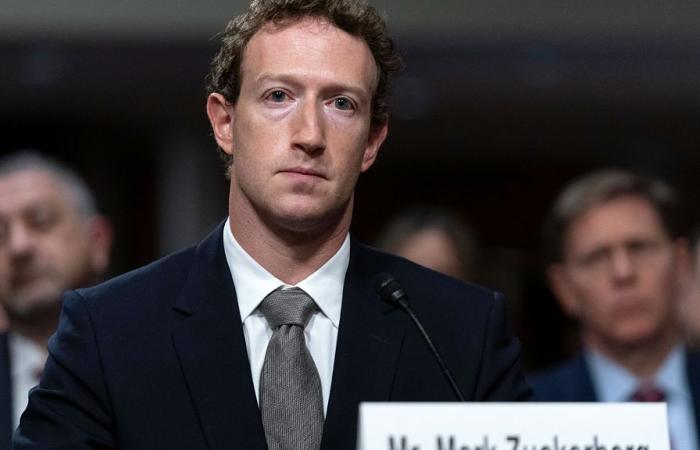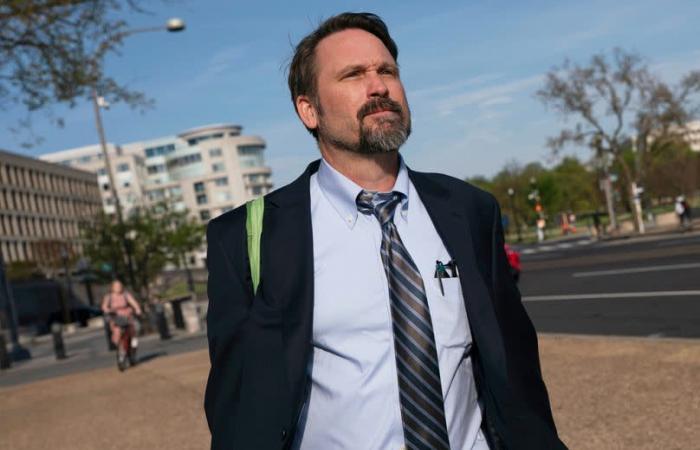Mark ZuckerbergPDG de Metadefended her business against allegations that she would monopolize the social media market on the first day of an antitrust trial in the United States.
Meta could be forced to sell popular social media sites Instagram and WhatsApp that he acquired over ten years ago.
In his introductory statements, Daniel Mathesonlawyer for the United States Federal Trade Commission (FTC), said Meta had “erect a ditch“To protect your interests by buying both startups and used its position to generate huge profits.
In response to Matheson’s questions, Zuckerberg said he was “not happy” from the apparent absence of progress in the development of a photo sharing application to compete with Instagram due to the latter’s rapid growth.
“It seems that this is what I underline“Said Zuckerberg, adding that he still encouraged his teams to do better.


Mark Zuckerberg said he “did not have in mind the full chronology of Instagram development“When he was questioned later in the day by Daniel Matheson on the speed of the growth of the application.
Meta ended up “invest a lot“In the application after its acquisition in 2012, continued Mark Zuckerberg, refuting Mr. Matheson’s assertions that the application is not the subject of investment.
Better to buy than compete
The main argument of the FTC is that Meta maintained a monopoly by continuing the strategy of Zuckerberg, “expressed in 2008: ‘It is better to buy than to compete‘”.
True to this maxim, the FTC affirms that Meta has “systematically tracked the potential and acquired rivals of the companies which she considered as serious competitive threats“.
The acquisition ofInstagram By Meta, formerly Facebook, for $ 750 million (659.5 million euros), was the first where the company maintained its competitor in activity as a separate application.
Previously, Facebook was known for its small “acquisitions”, where a company buys a start-up to hire its talented workers and closes the acquired company.
Two years later, she reoffended with the messaging application WhatsAppthat it bought for $ 22 billion (19 billion euros).
-WhatsApp and Instagram have helped Facebook move its activities from office computers to mobile devices, and to remain popular with young generations in the face of the emergence of rivals such as Snapchat (which he also tried, but without success, to buy) and more recently Tiktok.
However, the FTC has a close definition of the Meta competitive market, excluding businesses like Tiktok, Youtube and Apple messaging service from the Instagram and Whatsapp rivals.
Impact arguments
Mark Hansen, Meta lawyer, said the FTC presented a set of erroneous arguments. According to him, Meta has a lot of competition and has made improvements to the startups she has acquired.
This trial, in summary, is revealed, “said Hansen, adding that” consumers are unable to buy the products they buy “anyway,” consumers have been the big winners.
Regulators should support American innovation, rather than trying to dismantle a large American company and to advantage China on essential issues such as AI.
Meta, on the other hand, believes that the FTC prosecution “defy reality“.
“The evidence presented at the trial will show what all 17 -year -olds know: Instagram, Facebook and Whatsapp are in competition with Tiktok, YouTube, X, Imessage and many others, who belong to Chinese“, can we read in a statement addressed to the Associated Press.
“Regulators should support American innovation, rather than trying to dismantle a large American company and further advantage of China on crucial issues such as AI“, continues the declaration.


In a document tabled last week, Meta also stressed that the FTC “must prove that Meta has monopoly power on the relevant market that she claims today, not at some point in the past“.
According to experts, this could be difficult since more competitors have emerged in the space of social networks in the years which followed the acquisition of WhatsApp and Instagram by the company.
Meta is not the only technological enterprise in the crosshairs of the federal antitrust regulatory authorities: Google and Amazon face their own business.
The appeal phase of the Google case is expected to start on April 21. Last August, a federal judge said that the research giant was an illegal monopoly.










